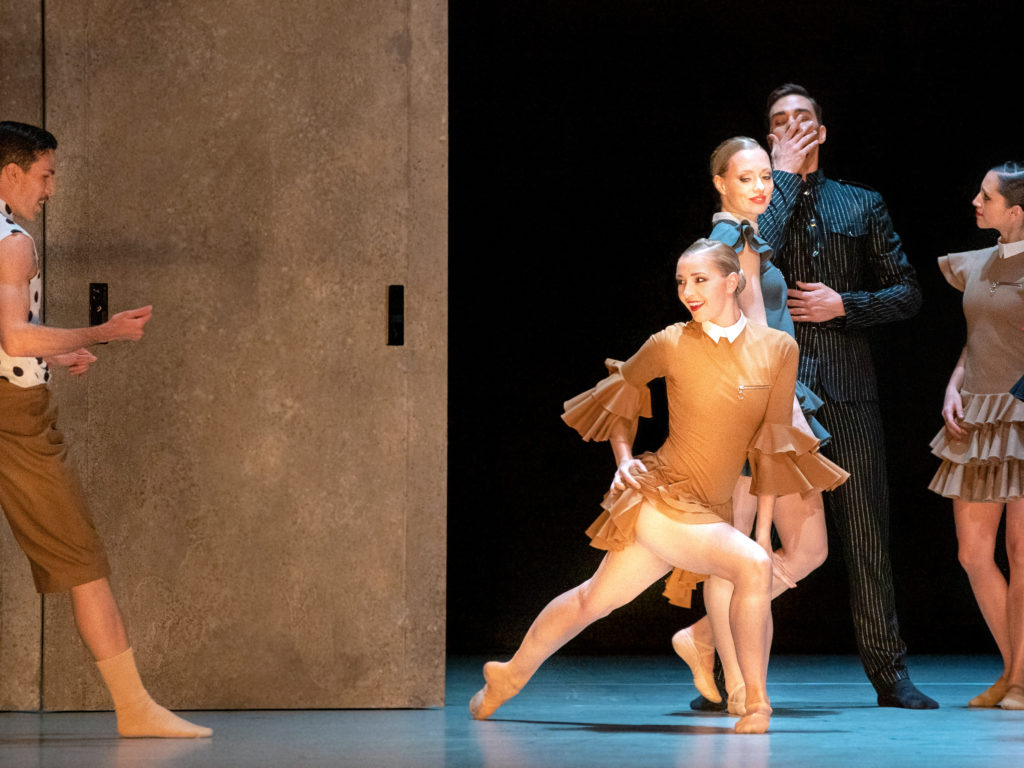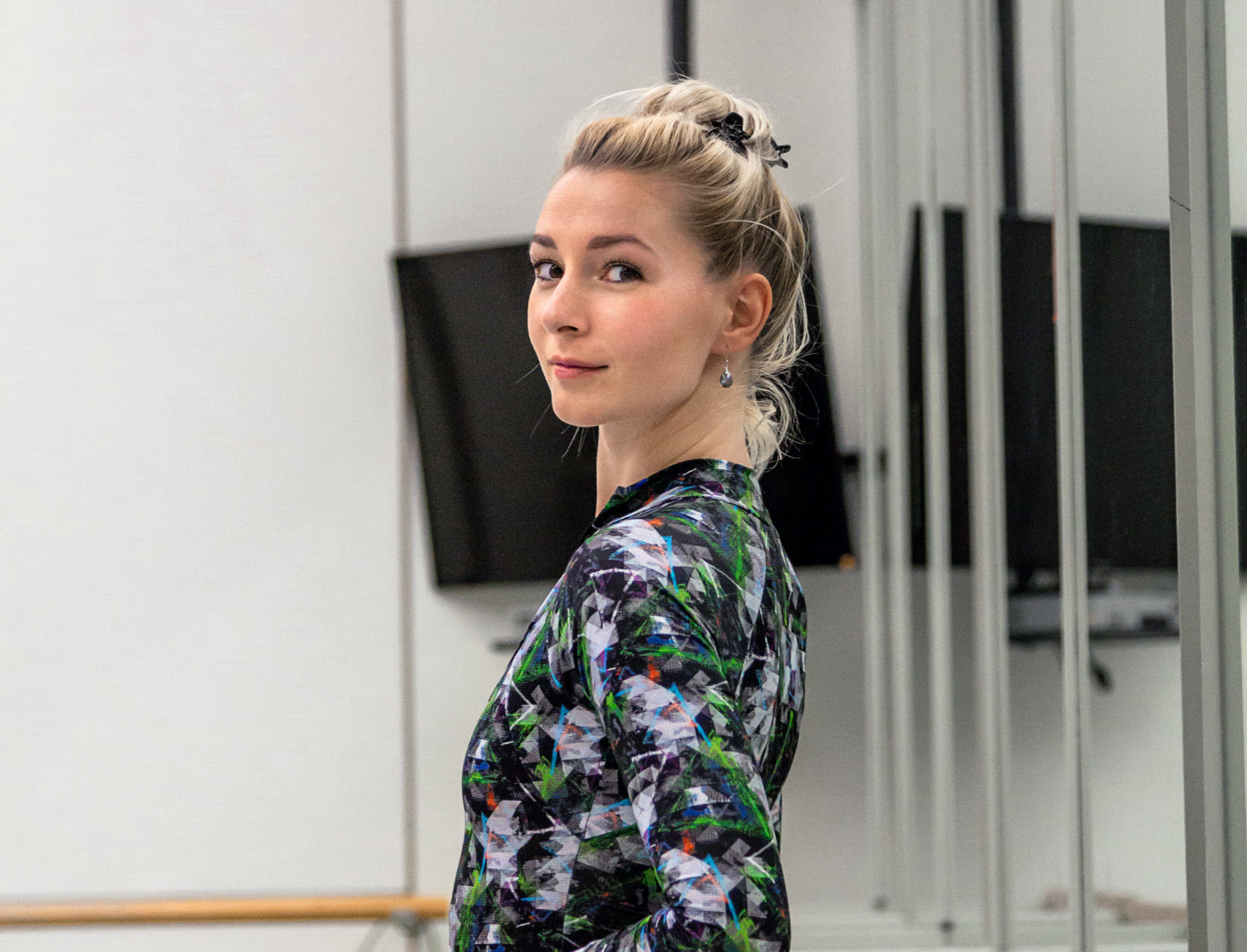Trained at Elmhurst Ballet School and KS Dance, British dancer Rebecca Haw openly admits she struggled to audition for companies. After two years, she landed her first contract at the Romanian National Opera in Bucharest, dancing in the body before being promoted to first soloist. In 2016, however, his position became unstable. “Foreigners in the company weren’t as welcome anymore,” she says, referring to a period of political upheaval in Romania. “We lost our director, Johan Kobborg, and a lot of dancers also left.”
Haw initially stayed with the company under the new manager, but it was clear from the start that it wasn’t going to work. “I lost most of my roles and got demoted,” Haw says. She cut her losses and moved on mid-season, eventually securing a guest contract at the Semperoper Dresden which became her current permanent position.
Given Haw’s tumultuous career path, it’s no surprise that she wants to help other dancers navigate the minefield of securing and maintaining fair employment. Having already launched The Audition Educator – a collection of online courses giving audition advice to professional dancers – in 2020, she went even further in January this year by creating CODA, a pioneering classical ballet agency that Haw considers as the first of its kind.
Although Haw had been researching ideas around CODA for years, it wasn’t until a lightbulb moment during lockdown in November 2021 that she held an all-night whiteboard session and mapped out a structure and a vision for the agency.
Aiming to give classical dancers “the pedestal they deserve,” CODA strives to bridge the gap between performers and companies, alleviating frustrations on both sides. “In general, dancers don’t know how to talk professionally with companies. I understand; I’ve been there,” Haw says. “We encourage our dancers to let us manage communications, especially around finances and working hours.”
CODA currently represents 17 dancers of various ranks, including Houston Ballet principal Skylar Campbell and former San Francisco Ballet soloist Madison Keesler, as well as freelancers. To date, CODA has secured a range of freelance gala and festival performances from its signatories, as well as a major short-term contract.
The agency also supports some corps members, but Haw thinks the best way for CODA to help them is to help the companies’ recruitment processes. “Obviously, the final decisions will always rest with the directors, but we want to help them by shortlisting the thousands of applications they receive and making sure they get dancer selections that are right for them and vice versa,” says -she. “It will also save dancers from wasting time and money going to auditions they’re not cut out for.”
Although Haw initially thought directors would be reluctant to give up some control over recruiting, she has already struck a deal to handle the big company shortlist next season. “I never thought this would happen,” says Haw. “That was the end goal of our five-year plan.”

By recruiting for companies, Haw may be able to help reverse some of the biases implicit in the world of classical ballet that prevent dancers from succeeding. “The stakes of classical ballet are vast. That’s why I wanted to start CODA while I was still playing – you hear a lot more when you’re in than when you’re not. Simple steps CODA has already taken to mitigate bias in its own operations include not categorizing dancers by gender and not publishing details of their weight. “We evaluate all dancers based on their ability, artistry, potential and suitability for positions rather than any other check-off category. We want to pass that approach on to the companies we end up working with,” says Haw. “I also seek training and self-study from various resources. Dance Data Project has been great.
Running CODA while playing Semperoper might seem like a daunting task, but Haw says she’s “always worked alongside work.” She also runs a digital marketing agency that she founded five years ago. At 20, she started offering freelance digital marketing services to pay for her tips while working at the Romanian National Opera. “For that, I would take on more work during the summer and reduce it if I did Swan Lakefor example.”
CODA, however, was less easy to control, due to its novelty. “How quickly things exploded was a shock to the system,” she says. “A few hours after the launch, we had soloists and principals from all over the world who sent in their CVs. I had to hire an additional assistant after a week.
Now, CODA has a team of two online assistants, two classical ballet experts to help vary pre-selection and manage new ideas and processes, and a social media community manager. “I also use today’s tools, such as AI editors or appointment scheduling systems, so that I can give what I don’t need or like to machines or people. other people,” says Haw.
The team will need to grow to accommodate Haw’s ambitious plans, from setting up press teams to expanding CODA’s representation to include choreographers, guest teachers, ballet masters and even pianists and conductors. “We have found one of the best Applicant Tracking Systems and tailored its functionality to the needs of business owners and other employers, allowing CODA to accept more job seekers” , she says. “Anything the classical world comes in contact with, we’ll cover.”



